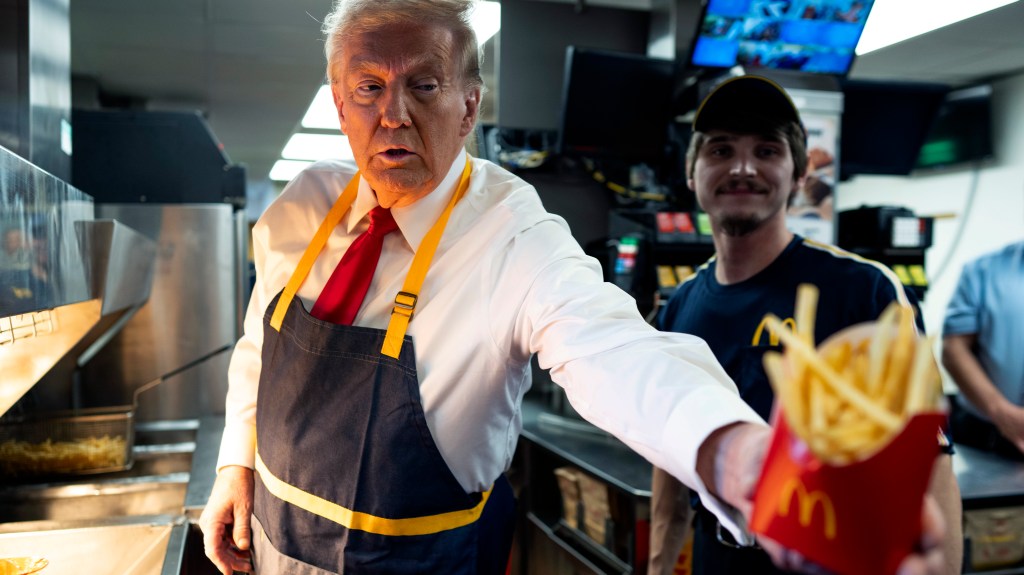McDonald’s Faces Decline in US Sales Amid Trade Tensions
McDonald’s has announced its largest quarterly drop in US sales since the onset of the pandemic, attributed largely to the declining consumer confidence amid President Trump’s trade policies.
During the three months ending in March, the fast food giant experienced a 3.6 percent decrease in same-store sales within the United States, marking the steepest decline since 2020.
Trump, a known admirer of McDonald’s food, famously remarked to employees, “I know this menu better than you do,” and was seen lending a hand at a Philadelphia McDonald’s during the previous year’s election campaign.
On Thursday, the corporation indicated it is coping with the “toughest market conditions” it has faced in years.
The imposition of tariffs by Trump has raised concerns over potential price increases and job cuts, negatively affecting consumer outlook.
Chris Kempczinski, the CEO of McDonald’s, stated, “We entered 2025 with an understanding that the quick service restaurant [QSR] sector would face challenges due to economic uncertainty and pressures on consumer spending. Geopolitical tensions have further exacerbated this uncertain climate and adversely impacted consumer sentiment more than anticipated during the first quarter.”
Globally, same-store sales fell by 1 percent, a surprising outcome for Wall Street analysts who had projected a 1 percent increase.
This decline follows similar warnings from other leading restaurant chains, including Domino’s Pizza, Chipotle Mexican Grill, and Starbucks, indicating a trend of reduced spending on dining out among Americans.
Kempczinski observed that demand from lower-income consumers within the fast-food sector had decreased by nearly double digits compared to the same quarter last year, with weakened demand now extending to middle-income consumers.
He added, “We believe McDonald’s can endure these harsh conditions better than many others, as we have consistently demonstrated, and expect to surpass our rivals by leveraging our brand’s strength and global reach.”
However, he acknowledged the company is not immune to the industry’s volatility and the economic challenges facing its customers.
The US economy is currently under strain, with recent data indicating a contraction for the first time in three years during the first quarter, raising fears of a potential recession in 2025.
According to data from the Conference Board, consumer confidence in the US fell to its lowest point in almost five years in April, marking the fifth consecutive month of declines, the longest stretch since 2008.
Sky Canaves, an analyst from eMarketer, stated, “Less affluent consumers are particularly affected by inflation and rising costs, and dining out is often one of the first areas where they cut back.”
To attract more customers, McDonald’s has expanded its value menu options, including the $5 meal deal and limited-time promotions on burgers and fries, mimicking strategies used by competitors.
Overall, the company’s revenues dropped 3 percent year-over-year to $5.96 billion, while net income also fell by 3 percent to $1.87 billion.
In contrast, the segment of McDonald’s operated by local franchisees saw a 3.5 percent increase in comparable sales compared to the previous year, driven by recovery in markets like the Middle East and Japan.
While McDonald’s reported a rise in anti-American sentiment globally, it has yet to observe any significant impact on its business or consumer perceptions of the brand.
On Thursday afternoon, McDonald’s shares dropped by $1.15, or 0.4 percent, closing at $318.50 in New York.




Post Comment